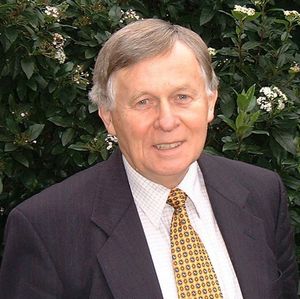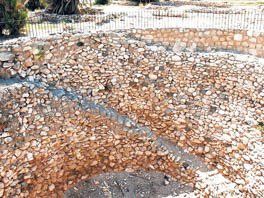On 10 January 1989 a baby girl was born in a hospital in Essex. She weighed exactly 7lbs and was 20 inches long. This may sound very ordinary, but she was unique in the whole of human history – she made me a grandfather for the first time!
There have, admittedly, been more remarkable babies. In 1961 a Turkish newborn weighed in at over 24lbs. The lowest confirmed birth-weight for a surviving infant is just 10ozs, recorded in Tyne and Wear in 1938.
As to multiple births, a Russian lady had sixty-nine children in twenty-seven confinements, including sixteen pairs of twins, seven sets of triplets and four batches of quadruplets!
Like no one else
Yet none of these comes close to being the most remarkable baby ever born. Although its exact date is unknown, his birth divides history into two parts – B.C. and A.D.
He had no formal education, yet thousands of universities, colleges and schools have been founded in his name. He never wrote a book, yet more books have been written about him than about anyone else in history.
He never painted a picture, composed music or wrote poetry, but nobody has been the subject of more songs, plays, poetry, pictures, films, videos and other art forms.
Except for one brief period during his childhood, his travels were limited to an area the size of Wales, but today his influence is literally worldwide. He set foot in only two countries, but today his followers are found in every land.
Insatiable interest
The baby’s name was Jesus. He was born in Bethlehem but was commonly known as Jesus of Nazareth, where he was brought up in the home of a carpenter called Joseph and his wife Mary. Humanly speaking, the odds against his future fame were huge – Nazareth had such a bad reputation that no one living there would even be considered for a job elsewhere
Yet in the twentieth century alone Jesus generated some 1,000 biographies, while the Encyclopaedia Britannicacarries a 30,000 word entry under his name.
Why this insatiable interest? Helpfully, most of what we know about his life is recorded in the world’s most reliable history book, the Bible. The scientist Sir Isaac Newton called it ‘a rock, from which all the hammers of criticism have never chipped a single fragment’.
Among all the sixty billion people that have ever lived on earth, Jesus was unique.
Virgin birth
Firstly,his conception was unique.Jesus was born in the normal way. What was unique was not how he left his mother’s womb but how he entered it – when Jesus was born his mother was a virgin.
This was affirmed at least three times by a doctor called Luke (read Luke 1:26-38). He records that an angel told Mary that she would bear a son while still a virgin. There would be a biological miracle in her womb, leading to the birth of a boy who would be called ‘the Son of God’ and whose kingdom would never end.
The other main narrative testifying to the virgin birth of Jesus was written by Matthew, a civil servant accustomed to keeping accurate records. All the available evidence points to a unique miracle brought about by the unaided power of God.
Wisdom
Secondly,his wisdom was unique.Not only was everyone ‘amazed at his teaching’ (Matthew 7:28) but when he was only 12 years old, theologians at Jerusalem were ‘amazed at his understanding and his answers’ (Luke 2:47).
There is nothing unusual about theologians being baffled by young people’s questions, but these experts were stunned by his answers- his mastery of deep theological issues. In the Bible’s own words, he possessed ‘all the treasures of wisdom and knowledge’ (Colossians 2:3).
Miracles
Thirdly,his miracles were unique. The Bible occasionally records God using other people to perform miracles, but -Jesus sometimes did more miracles in a day than are recorded in 1,000 years of Old Testament history. He healed people of ‘every sickness and disease’ (Matthew 4:23).
Most of his miracles were healings – blindness, dumbness, deafness, leprosy, lameness and paralysis are specifically mentioned. And unlike those who make extravagant claims on religious television and elsewhere today, there is not a single recorded case of failure or relapse.
He fed 5,000 people with a handful of loaves and fish; he stilled a storm so violent that experienced sailors were terrified of drowning; and on three occasions he brought a dead person back to life.
Character
Fourthly,his character was unique. Contrary to many religious pictures, he did not wear a halo. He was genuinely and completely human. As a child, he had to learn how to stand, to speak, to eat and to dress.
He knew what it was to be tired, hungry, thirsty, happy and disappointed. He also knew what it was to be tempted. The Bible says he was ‘tempted in every way, just as we are’ (Hebrews 4:15) – but adds the unique distinction, ‘yet he was without sin’.
When he asked his religious critics, ‘Can any of you prove me guilty of sin?’ (John 8:46) nobody could reply – and still nobody can.
Death
Fifthly,his death was unique. About one-third of the New Testament’s biography of Jesus is taken up with his death. Why is that? Because his death fulfilled the purpose of his life! The ‘hour’ for which he had come into the world was the hour in which he left it.
The Bible teaches that human death is the result of sin and that all mankind stands condemned before a holy God. We are all subject to the death penalty he has laid down – a penalty that extends beyond the grave and leaves the sinner exposed for ever to the righteous wrath of God.
But if Jesus had no sin, why did he die? Uniquely, he died in the place of others – people like you and me. He ‘came into the world to save sinners’ (1 Timothy 1:15) and did so by bearing in his own body and spirit the dreadful penalty we deserve. And this he did by choice.
Resurrection
Sixthly,his resurrection was unique. The Bible records a handful of other people -being brought back to life, but the -resurrection of Jesus was different. They all died again, but Jesus ‘cannot die again; death no longer has mastery over him’ (Romans 6:9).
At the University of Cape Town I once asked an atheist, ‘What do you think of Jesus?’ He replied, ‘I am not sure, but I do know that everything hinges on whether he rose again from the dead’.
He did! Lord Lyndhurst, High Steward of Cambridge University and one of the greatest minds in British legal history, once said, ‘I know pretty well what evidence is; and I tell you, such evidence as that for the resurrection has never broken down yet’.
Yet the resurrection of Jesus is not just a historical fact – it provides the right answer to a question we must all face: What do you think of Jesus Christ?Even if you think he was the greatest person who ever lived, but do not believe he rose from death, you fall far short of the truth.
The Bible’s testimony is that by his resurrection, Jesus was ‘declared with power to be the Son of God’ (Romans 1:4) – in other words, it proves that he was God in human flesh and form.
Invitation
There is a second vital question: What will you do with Christ?The Creator and upholder of the universe, the eternal Son of God, stooped to become a man. He lived a life of perfect holiness, gave that life in the place of others, and rose triumphantly and eternally from the grave.
He now promises forgiveness of sins and eternal life to all who trust him as their Saviour and take him as their Lord.
What will you do with him?The alternatives are clear – you must reject him or receive him. Reject him and one day you will hear him say, ‘Depart from me, you who are cursed, into the eternal fire prepared for the devil and his angels’ (Matthew 25:41).
What an appalling fate! Sentenced by the one who came to set you free. Condemned by the one who came to bring forgiveness. Turned into hell by the one who invites rebellious sinners to heaven!
But what if you receive him? Not only will you know his pardon and presence here and now, but one day you will hear him say, ‘Come, you who are blessed by my Father; take your inheritance, the kingdom prepared for you since the creation of the world’ (Matthew 25:34).
Why hesitate a moment before committing yourself to him and becoming a true Christian?

















